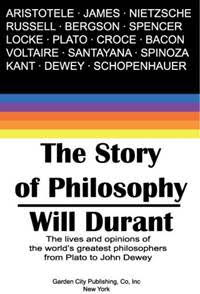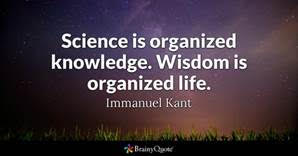The Story Of Philosophy
Author : Will Durant
Genre : Philosophy

Years ago, turning 30 and wanting to reflect on what life’s goal should be, I went on a Mount Everest base camp trek with no phone or laptop but just one book for company – The Story Of Philosophy. The book did help me get my ‘philosophy of life’ clearer… gave up my expat career in P&G Singapore and started a social entrepreneurship in Tier II cities in India.
I still remember its opening line: “There is a pleasure in philosophy that every student feels till the coarse necessaries of daily existence drive us from the height of thought to the mart of economic strife and gain!”
So true. In this whole rat race for money and status, we seem to have forgotten what Browning taught us: “Life has meaning, to find its meaning is my meat and drink.”

I happened to be just one insignificant convert of this book. This one book is famed to have introduced more people into philosophy than any other work. So, what makes the book so powerful?
One because philosophy overall makes us wise, and therefore highly recommended even to science students like me. “Science is organized knowledge. Wisdom is organized life… Science tells us how to heal and how to kill; it reduces the death rate in retail and then kills us wholesale in war; but only wisdom—desire coordinated in the light of all experience—can tell us when to heal and when to kill.”

Two because it condenses the lives and teachings of some of the wisest of our species: Plato, Aristotle, Bacon, Spinoza, Voltaire, Kant, Schopenhauer, Nietzsche… [The subtitle of the book is The Lives and Opinions of the Great Philosophers.] Durant not only explains their core messages but also shows how their individual life experiences shaped their views.
Plato tells us of humble wisdom, of how Socrates (when proclaimed by the Oracle as the wisest Greek) said, “one thing only I know, and that is I know nothing”. For philosophy begins when one learns to doubt – particularly doubt one’s cherished beliefs.

Bacon’s wit is lively: “A married man is seven years older in his thoughts the first day.” Or “It is often seen that bad husbands have good wives.”
Stories about Spinoza are always a pleasure to read. Some called Spinoza “the most impious atheist that ever lived upon the face of the earth”; while others found him as “a treasure of infinite value, which shall never perish”
Kant’s pragmatic morality is thought provoking: “Morals are not absolute; they are a code of conduct more or less haphazardly developed for group survival, and varying with the nature and circumstances of the group”
Schopenhauer was a big believer in Eastern/Indian philosophy that “I is a delusion; that the individual is merely phenomenal, and that the only reality is the Infinite One… that we are all members of one organism, all of us little currents in an ocean of will… the ultimate wisdom, then, is Nirvana: to reduce one’s self to a minimum of desire…” No wonder then he was a big critic of sensual pleasures: “we see the glance of two lovers meet longingly; yet why so secretly, fearfully, and stealthily?” He remains cautious on human desire: “For every wish that is satisfied there remain ten that are denied. Desire is infinite, fulfillment is limited: “it is like the alms thrown to a beggar, that keep him alive today in order that his misery may be pro- longed tomorrow… The satisfied passion oftener leads to unhappiness than to happiness; the realized desire develops a new desire, and so on endlessly.”

Nietzsche and his Thus Spoke Zarathustra or Beyond Good and Evil is not for every mortal. The parable of God is Dead and his views on morality would turn traditional morality upside down but also force us to think.
But beyond the philosophy, Will Durant is no ordinary biographer. With the magic of his pen, he creates stories, links and natural progression from one philosopher to another. Durant has written for the non-specialist and brings alive every philosopher as if we are having a living room conversation with them.
The big criticism of the book, which Will Durant acknowledged, was the exclusion of any Eastern philosophy, whether Tao or Buddhism or even Hinduism. His defense is that these are semi religious.
The book also takes a long time to read (I took months!) but not because it is long or boring. But precisely because it engages you so much, you start thinking of that philosophy, often searching more on google and trying to frame your own view on it. And then only after a couple of weeks, you are ready to move to a new philosophy.
Why should you read the book: Philosophy is nothing but curiosity and a pursuit of the ideal, so those who pursue it even cursorily find great maturity and perspective. Read it to become wiser, read it to be clearer on the big questions of life.
Goodreads Link: The Story of Philosophy: The Lives and Opinions of the World’s Greatest Philosophers by Will Durant | Goodreads

 This information will never be shared with third party
This information will never be shared with third party
Very thought provoking article.
Wow, got a glimpse of the forgotten knowledge 💡
Very insightful
Insightful article
Insightful article
Great review, such informative summaries a reader like me crave for more books to read after reading your summaries